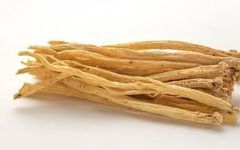The primary effects and functions of Codonopsis (Dang Shen) are to nourish blood and tonify qi. Therefore, individuals suffering from both qi and blood deficiency, shortness of breath, palpitations, fatigue, pale complexion, dizziness, poor digestion, and frequent colds are suitable candidates for Codonopsis. Drinking some wine infused with Codonopsis can also help strengthen the spleen. Let’s explore the effects and functions of Codonopsis, its consumption methods, and contraindications!
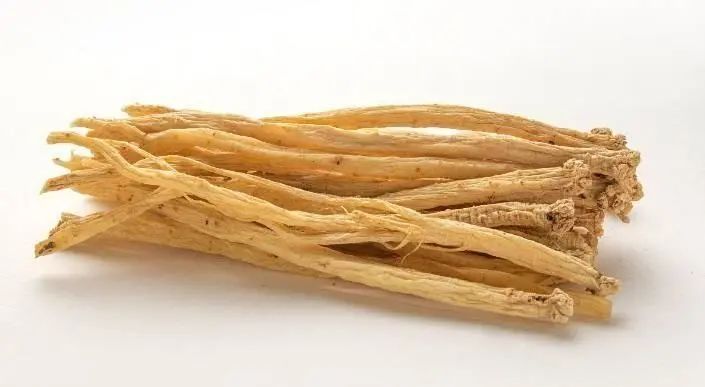 Other names for Codonopsis include Shangdang Ginseng (上党人参) from “Benjing Fengyuan”, Huangshen (黄参) from “Baicao Jing”, Shitou Shen (狮头参) from “Weng Youliang Bianwu”, Zhonglingcao (中灵草) from “Qinghai Yaocai”, Dongdang (东党), Taidang (台党), Ludang (潞党), and Koudang (口党). It is the root of the plant belonging to the Campanulaceae family. It is harvested in autumn, with the aerial parts removed, cleaned of soil, and sun-dried until semi-dry. The root is then rubbed by hand or with a wooden board to ensure the skin adheres closely to the wood, making it plump and soft. This process is repeated 3-4 times before the final drying.
Other names for Codonopsis include Shangdang Ginseng (上党人参) from “Benjing Fengyuan”, Huangshen (黄参) from “Baicao Jing”, Shitou Shen (狮头参) from “Weng Youliang Bianwu”, Zhonglingcao (中灵草) from “Qinghai Yaocai”, Dongdang (东党), Taidang (台党), Ludang (潞党), and Koudang (口党). It is the root of the plant belonging to the Campanulaceae family. It is harvested in autumn, with the aerial parts removed, cleaned of soil, and sun-dried until semi-dry. The root is then rubbed by hand or with a wooden board to ensure the skin adheres closely to the wood, making it plump and soft. This process is repeated 3-4 times before the final drying.
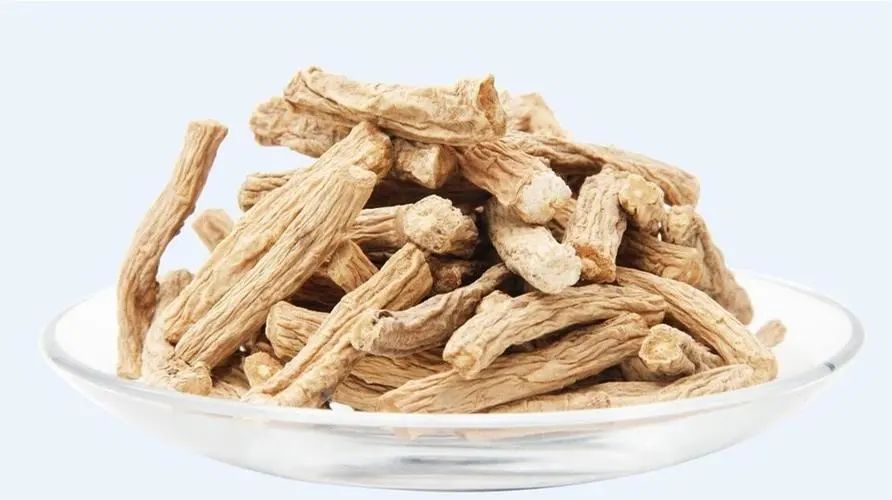 The plant is a perennial herb. The root is cylindrical, measuring 1-1.7 cm in diameter, with a swollen root head at the top, featuring numerous tuberous stem scars. The outer skin is milky yellow to light gray-brown, with longitudinal and transverse wrinkles. The stem is twining, long, and branched, with rough white hairs at the lower part and smooth or nearly smooth at the upper part. The leaves are opposite, alternate, or pseudo-whorled: they have petioles that are 0.5-4 cm long, covered with sparse soft hairs; the leaf blades are ovate or broadly ovate, measuring 1-7 cm long and 0.8-5.5 cm wide, with a blunt or pointed apex, a truncate or shallowly heart-shaped base, entire or slightly wavy margins, green above with coarse hairs, and pale green below densely covered with soft hairs. The flowers are solitary with slender pedicels; the calyx is green with 5 lobes, the lobes are lanceolate, blunt at the tip, smooth or slightly hairy; the corolla is broadly bell-shaped, 2-2.5 cm in diameter, pale yellow-green with light purple spots, with 5 lobes at the tip, the lobes are triangular to broadly triangular and erect; there are 5 stamens, with the filaments expanded below the middle; the ovary is superior, with 3 chambers and numerous ovules, the style is short with 3 broad, funnel-shaped stigmas. The fruit is conical, with 3 chambers and persistent calyx. The seeds are small, brown, and shiny. The flowering period is from August to September, and the fruiting period is from September to October.
The plant is a perennial herb. The root is cylindrical, measuring 1-1.7 cm in diameter, with a swollen root head at the top, featuring numerous tuberous stem scars. The outer skin is milky yellow to light gray-brown, with longitudinal and transverse wrinkles. The stem is twining, long, and branched, with rough white hairs at the lower part and smooth or nearly smooth at the upper part. The leaves are opposite, alternate, or pseudo-whorled: they have petioles that are 0.5-4 cm long, covered with sparse soft hairs; the leaf blades are ovate or broadly ovate, measuring 1-7 cm long and 0.8-5.5 cm wide, with a blunt or pointed apex, a truncate or shallowly heart-shaped base, entire or slightly wavy margins, green above with coarse hairs, and pale green below densely covered with soft hairs. The flowers are solitary with slender pedicels; the calyx is green with 5 lobes, the lobes are lanceolate, blunt at the tip, smooth or slightly hairy; the corolla is broadly bell-shaped, 2-2.5 cm in diameter, pale yellow-green with light purple spots, with 5 lobes at the tip, the lobes are triangular to broadly triangular and erect; there are 5 stamens, with the filaments expanded below the middle; the ovary is superior, with 3 chambers and numerous ovules, the style is short with 3 broad, funnel-shaped stigmas. The fruit is conical, with 3 chambers and persistent calyx. The seeds are small, brown, and shiny. The flowering period is from August to September, and the fruiting period is from September to October.
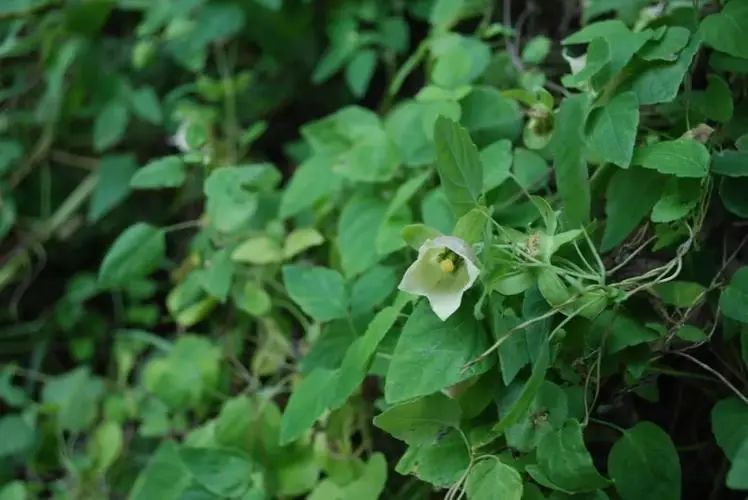
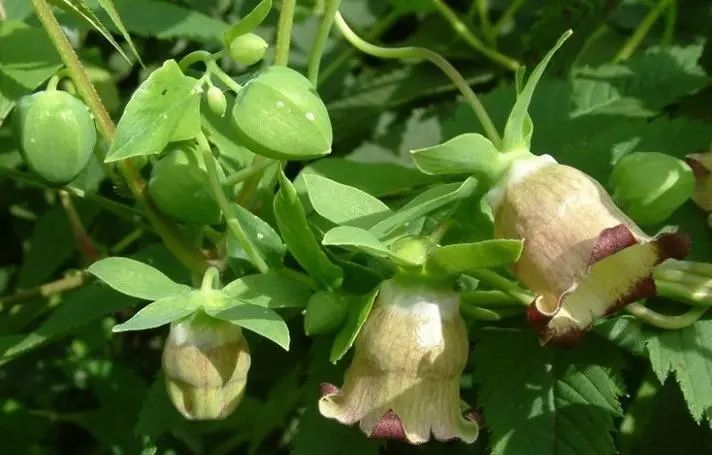 Meridian Affinity: Spleen and Lung meridians
Meridian Affinity: Spleen and Lung meridians
Taste and Properties: Sweet flavor; neutral nature
Contraindications: Not suitable for those with excess conditions or heat conditions; not recommended for use alone in cases of deficiency with excess.
Main Functions and Indications: Strengthens the spleen, tonifies the lungs, benefits qi, and generates fluids. It is indicated for spleen and stomach deficiency, poor appetite, loose stools, fatigue in the limbs, lung deficiency with cough and wheezing, shortness of breath with spontaneous sweating, and deficiency of both qi and blood.
Dosage: For internal use: decoction, 6-15g; or as a syrup, pills, or powder. For generating fluids and nourishing blood, it is best used raw; for tonifying the spleen and lungs, it is best used dry-fried.
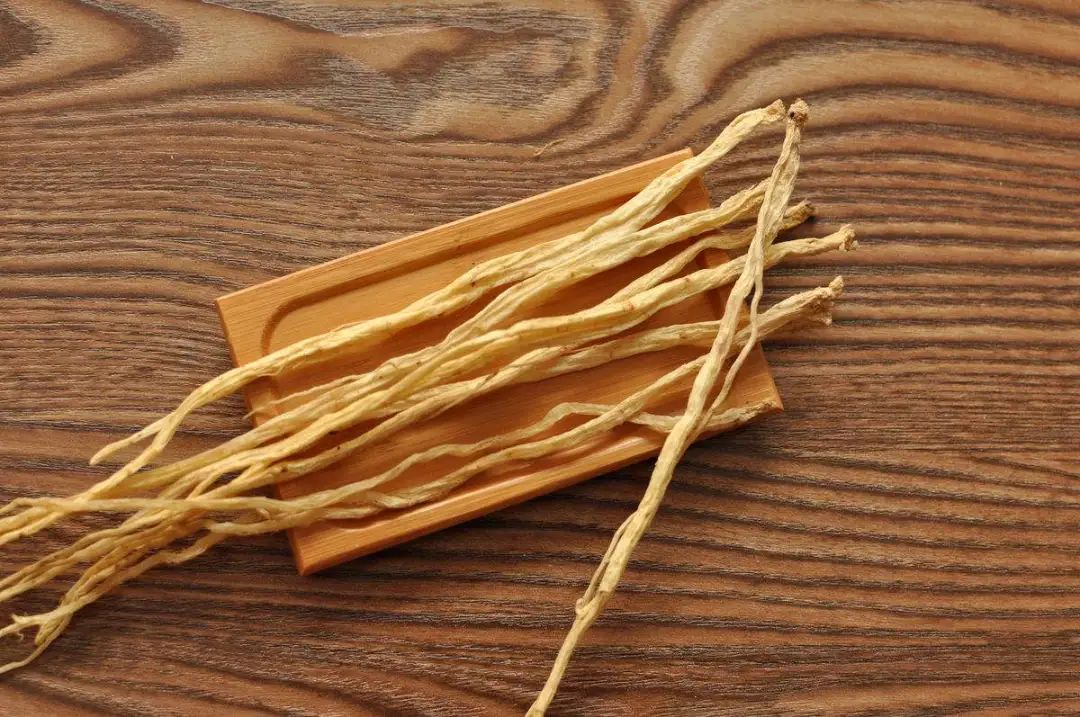 Effects and Functions of Codonopsis
Effects and Functions of Codonopsis
1. Strengthens the Spleen and Stomach
One of the effects and functions of Codonopsis is its ability to strengthen the spleen and stomach. When the qi of the spleen and stomach is insufficient, the body often feels extremely fatigued, frequently drowsy, and has a poor appetite, which is detrimental to health. At this time, consuming some Codonopsis can enhance the function of the spleen and stomach, improving these adverse symptoms.
2. Tonifies Qi
Codonopsis also has the effect of tonifying qi, effectively improving conditions of qi and blood deficiency. In real life, many women suffer from qi and blood deficiency, which significantly impacts their health. In such cases, consuming some Codonopsis can help alleviate the condition.
3. Nourishes Yin and Blood
Codonopsis not only tonifies qi but also nourishes yin and blood, which is one of its more common effects and functions. For women, regularly consuming Codonopsis can effectively replenish blood, improving symptoms such as palpitations, shortness of breath, deficiency of both qi and blood, and pale complexion, thus promoting overall health.
4. Generates Fluids and Quenches Thirst
Codonopsis also has the ability to generate fluids and quench thirst. Regular consumption can effectively alleviate symptoms such as dry mouth, shortness of breath, and thirst caused by excessive talking that depletes qi and fluids, making it suitable for teachers, vocal performers, and others who speak frequently.
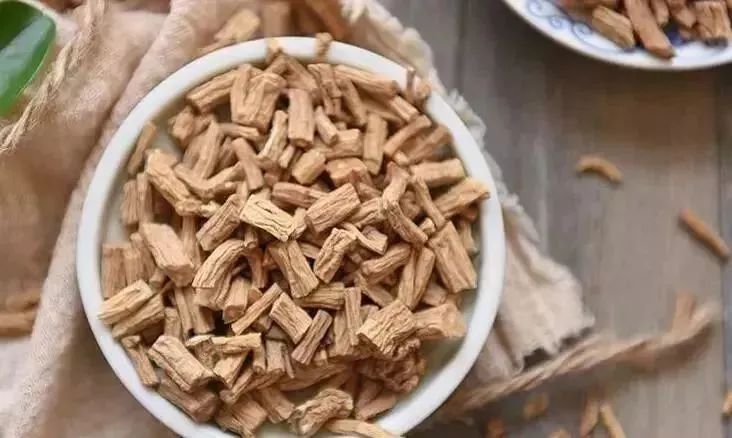 Contraindications for Codonopsis
Contraindications for Codonopsis
1. Compatibility Contraindications: According to the “Eighteen Contradictions of Materia Medica”, it is stated that “various ginsengs and pungent herbs should not be combined with Codonopsis“; therefore, it is not recommended to use Codonopsis in combination with Rhizoma Rhei as it may produce side effects.
2. Contraindicated Populations: Individuals with excessive physical deficiency should avoid consumption. Although Codonopsis has tonifying effects suitable for those with slight weakness, those who are excessively weak may experience symptoms such as dry mouth and ulcers. Individuals with a hot constitution should also avoid it, as Codonopsis has tonifying properties that may exacerbate internal heat, leading to aggravated symptoms. Such individuals typically exhibit loud voices, irritable tempers, and a preference for cold drinks.
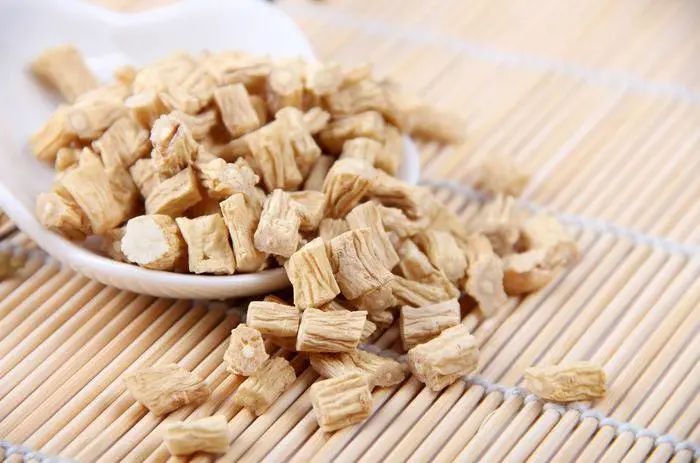
Good Combinations with Codonopsis
1. Codonopsis + Huang Qi (Astragalus): Tonifies middle qi and enhances immunity
Dosage:10g each of Codonopsis and Huang Qi, decoct or steep in hot water as a tea.
Suitable for:Individuals with insufficient middle qi, dry cough, wheezing, fatigue, and low immunity.
Service Dialogue:Codonopsis and Huang Qi tonify spleen and lung qi, working together to replenish middle qi and elevate clear yang, ensuring abundant middle qi.
2. Codonopsis + Lotus Seed: Regulates spleen and stomach
Dosage:10g each of Codonopsis and lotus seed, decoct, eat the lotus seeds, drink the soup, or steep in hot water repeatedly as a tea.
Suitable for:Individuals with stomach issues, poor digestion, chronic diarrhea, or unformed stools.
Service Dialogue:Codonopsis tonifies spleen and lung qi, while lotus seed nourishes the spleen and stops diarrhea, working together to tonify qi and stop diarrhea, strengthening the spleen and stomach.
3. Codonopsis + Angelica: Activates blood and generates blood, tonifying liver blood
Dosage:10g of Codonopsis and 5g of Angelica, decoct or steep in hot water as a tea.
Suitable for:Individuals with blood stasis constitution, cardiovascular diseases, irregular menstruation, dizziness, and insomnia with vivid dreams.
Service Dialogue:
4. Codonopsis + Longan: Nourishes both qi and blood, tonifying heart blood
Dosage:10g of Codonopsis and 8 longan fruits, steep in hot water as a tea.
Suitable for:Individuals with insufficient heart blood, shallow sleep, fatigue, spontaneous sweating, elderly and weak individuals, and those with chronic illnesses.
Service Dialogue:Codonopsis tonifies qi and nourishes blood, while longan nourishes the heart and spleen, calming the spirit; together they nourish both qi and blood.
5. Codonopsis + Mai Dong + Wu Wei Zi: Benefits qi, nourishes yin, and generates fluids
Dosage:9g of Codonopsis, 9g of Mai Dong, and 6g of Wu Wei Zi, decoct for consumption.
Suitable for:Individuals who sweat easily, experience fatigue in the limbs, poor spirit, dizziness, chest tightness, shortness of breath, dry mouth, sore throat, and poor appetite.
Service Dialogue:Codonopsis tonifies spleen and lung qi, Mai Dong nourishes yin and clears heat, generating fluids and moistening the lungs, while Wu Wei Zi astringes yin and stops sweating. Together, these three herbs benefit qi, nourish yin, moisten the lungs, stop cough, and generate fluids to quench thirst.
6. Codonopsis + Red Dates: Tonifies lung and spleen, benefits qi and nourishes blood
Dosage:10g of Codonopsis and 4 red dates, steep in hot water as a tea.
Suitable for:Individuals experiencing fatigue, weakness, and drowsiness due to spleen and lung qi deficiency.
Service Dialogue:Codonopsis tonifies spleen and lung qi, while red dates nourish blood; together they replenish qi and blood, ensuring abundant qi and blood, alleviating various symptoms.

Note:This account aims to promote traditional Chinese medicine culture. The TCM knowledge mentioned in this article is for learning and exchange purposes only.
WeChat has been updated! If youneither star me★nor like or “view” my articles,the system will assume you do not wish to receive information about herbal medicine knowledge, and ultimatelyyou will not receive our article updates
End of Article. Thank you for your patience in reading. If you find it interesting, please click “ Like” and “
Like” and “ View” at the bottom~
View” at the bottom~

